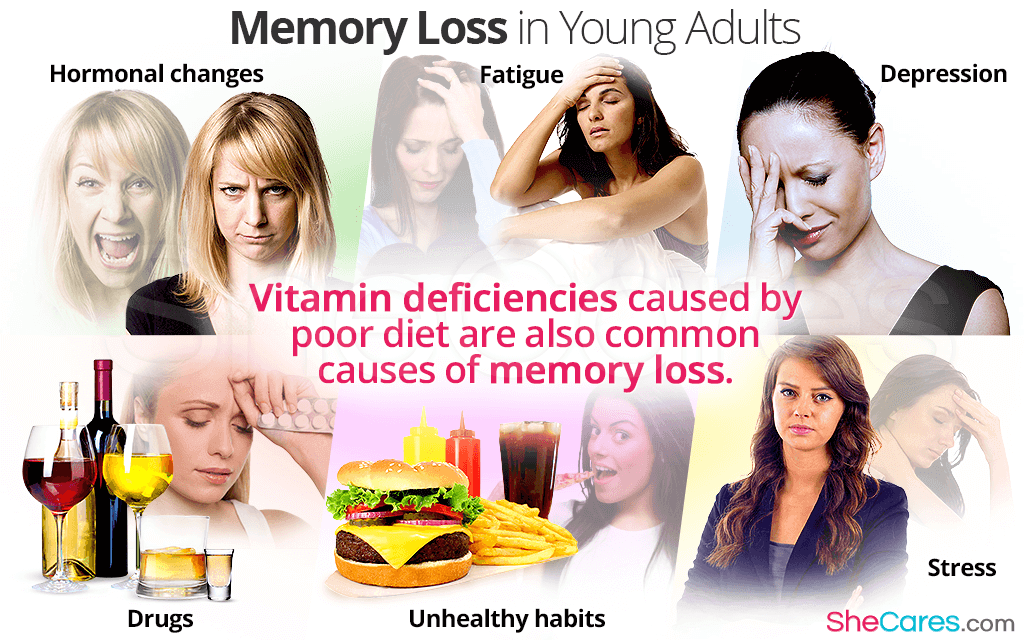Although many people imagine that older adults are the only ones who struggle with memory problems, memory loss in young adults is also a fairly common problem. It can be especially worrying for a young person to begin struggling with memory because of this misconception that it is strange and unusual. Read on to understand the signs, causes, and more of short-term memory loss in young adults.
Signs of Memory Loss
Several problems can indicate that a young adult is having trouble with memory loss. These signs of memory loss in young adults can include:
- Missing appointments, meetings, or classes
- Frequently losing small objects
- Forgetting names
There are medical tests that can reveal signs of memory loss in young adults as well. Usually, testing is done as an interview performed by a doctor or a psychological test measuring cognitive functioning.
Causes
While many people believe that memory loss must be caused by a devastating illness or accident, there are actually several possible reasons why a young woman might be experiencing problems with memory. Some causes of memory loss in young adults are:
- Unhealthy habits. Eating foods without the right nutritional values and staying sedentary are high risk factors for memory problems, both as a young adult and later in life. Vitamin deficiencies caused by poor diet are also common causes of memory loss.
- Fatigue. Just sleeping fewer hours than recommended affects brain functioning, and since the brain encodes new memories during sleep, missing out on these important hours of sleep can be detrimental to memory.
- Stress. High levels of stress and a lot of pressure in a work or school environment might also be a cause of memory problems. Stress overwhelms the brain and makes it difficult for the memory-encoding process to take place, since the brain has so many other problems to manage.
- Depression. Along with other mental illnesses, depression affects the brain and its ability to focus on new information. This means that memories are less likely to be formed because the brain does not concentrate on the information.
- Hormonal changes. In women, estrogen plays an important role in the brain and appears to be significant in forming memories. If estrogen levels drop or become unbalanced in comparison to other hormones in the body, it may cause memory problems.
- Drugs. Both medications prescribed by doctors and recreational drugs, including alcohol, can have an impact on memory. Alcohol is one of the most commonly abused drugs, and its effects on memory are well-known to be detrimental.
Managing Memory Loss
For more minor memory loss symptoms, lifestyle changes are likely to be the most helpful. Memory lapses can be managed with certain adjustments in habit, such as:
- Designating a spot for keys, phone, and other small objects
- Using mnemonic devices to remember new information
- Asking a friend for reminders of important dates
- Getting more sleep (i,e; between 7-8 hours)
- Meditation or yoga
- Exercising regularly
- Eating healthy
- Taking vitamins
- Using a schedule or planner
Although memory loss is a difficult condition, it can be improved by understanding the causes of memory issues in young adults and the management methods available. For some people, certain herbal remedies may also be an option to help improve memory, mental functioning, and hormonal balance.
To learn more, read about the different types of memory loss.
